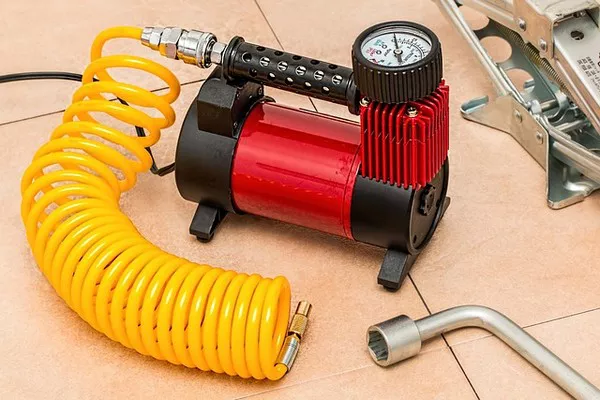Carrier compressors have long been regarded as a cornerstone of modern refrigeration and air conditioning systems, delivering efficient and reliable performance. When considering the cost of a Carrier compressor, it’s important to recognize that several factors come into play, influencing the price range. From the type of compressor to its capacity and features, various elements contribute to the final cost. This article explores the key determinants of Carrier compressor pricing, providing insight into the nuances that buyers should consider.
Types of Carrier Compressors
Carrier offers a diverse range of compressor types, each designed to cater to specific applications and needs. The most common types include reciprocating compressors, rotary compressors, and scroll compressors. The type of compressor selected significantly impacts its cost.
1. Reciprocating Compressors:
These are known for their simplicity and reliability. They are commonly used in smaller cooling systems and residential air conditioning units. Due to their straightforward design, reciprocating compressors are often more affordable than other types. The cost can vary based on factors like size, capacity, and energy efficiency.
2. Rotary Compressors:
Rotary compressors utilize rotating mechanisms to compress refrigerant. They are more compact and provide a smooth operation, making them suitable for various applications, including residential and light commercial systems. The cost of rotary compressors tends to be higher than reciprocating compressors due to their advanced technology and efficiency.
3. Scroll Compressors:
Scroll compressors are known for their exceptional efficiency and quiet operation. They are widely used in applications where low noise levels and high performance are critical, such as high-end residential and commercial air conditioning systems. The complexity of scroll compressor design often results in a higher cost compared to other types.
Capacity and Cooling Load
Another crucial factor influencing the cost of a Carrier compressor is its capacity or cooling load. The cooling load refers to the amount of heat that needs to be removed from a space to achieve the desired temperature. Compressors with higher cooling capacities tend to be larger and more robust, leading to an increase in cost. For instance, a compressor designed to cool a small office space will have a lower capacity and, consequently, a lower cost compared to a compressor meant for cooling a large commercial building.
Energy Efficiency
In recent years, energy efficiency has become a paramount consideration in the design and selection of compressors. Energy-efficient compressors not only contribute to reduced operational costs but also align with sustainability goals. Carrier compressors often feature advanced technologies, such as variable-speed drives and improved heat exchange mechanisms, to enhance their energy efficiency. While energy-efficient models may have a higher upfront cost, the long-term savings in energy consumption can outweigh the initial investment.
Additional Features and Technologies
Carrier is renowned for incorporating cutting-edge features and technologies into their compressor designs. These innovations can elevate the cost of the compressor but may provide significant benefits in terms of performance and reliability. Some noteworthy features that can impact the cost include:
1. Variable-Speed Technology:
Compressors equipped with variable-speed technology can adjust their speed based on the cooling demand, leading to optimized energy consumption and enhanced comfort. While these compressors may have a higher initial cost, they can result in substantial long-term savings.
2. Digital Controls:
Advanced digital control systems offer precise monitoring and adjustment of compressor operations. These systems contribute to improved efficiency and troubleshooting capabilities, which can justify a higher price.
3. Noise Reduction:
Compressors equipped with noise reduction technologies are desirable for applications where quiet operation is essential. These models often feature additional components to minimize vibrations and noise, adding to their cost.
4. Durability and Reliability Enhancements:
Some compressors come with enhanced durability features, such as improved materials, coatings, and protection against adverse environmental conditions. These enhancements can increase the upfront cost but extend the compressor’s lifespan and reduce maintenance requirements.
Market Demand and Brand Reputation
Market demand and brand reputation play a significant role in the cost of Carrier compressors. Carrier is a globally recognized brand with a history of producing high-quality HVAC equipment. As a result, their compressors often command a premium due to their reputation for reliability and performance. Additionally, market dynamics and supply and demand factors can influence the pricing of Carrier compressors, with fluctuations occurring over time.
Installation and Maintenance Costs
It’s important to note that the cost of the compressor itself is only one component of the overall expense. Installation costs, including labor, refrigerant, and necessary components, must be considered. Additionally, ongoing maintenance costs can vary based on the complexity of the compressor, its features, and the system it operates within.
Conclusion
When assessing the cost of a Carrier compressor, it’s evident that a multitude of factors come into play. From the type of compressor and its capacity to energy efficiency, additional features, and market dynamics, each element contributes to the final price tag. Buyers should carefully evaluate their specific cooling needs, budget constraints, and long-term goals when making a decision. While a higher upfront cost might be justified by enhanced performance, energy savings, and reliability, a comprehensive understanding of these factors is essential for an informed purchase that aligns with both short-term and long-term objectives.

